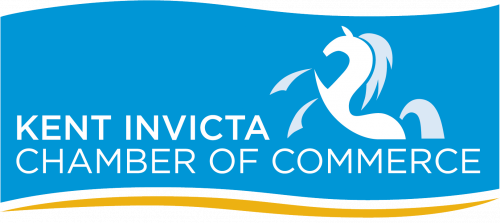Should My Business Be Worried About The UK ISDN Switch Off?
Should my business be worried about the UK ISDN switch off?
The UK ISDN switch off date is approaching fast. During 2025, Openreach will turn off the UK’s traditional telephone network. (Openreach is a BT subsidiary responsible for the network.)
You might hear the acronyms PSTN and ISDN used in relation to the switch-off. To get technical, currently, the Integrated Services Digital Network is part of the Public Switched Telephone Network..
You may hear these changes called the analogue switch off – although the phone network is already digital. However, these legacy networks are no longer able to provide the service needed.
So, from 2025 onwards, all ‘landline’ phone communications will be internet based in one way or another. Sometimes these new services are called cloud phones, VoIP phones or virtual landlines.
As the date gets closer, organisations across the UK are asking questions. Will it disrupt our operations? Will it be more expensive? Will we lose our number?
This article aims to answer these questions and guide you through concerns about what the switch off will mean for you.
Our business relies on us being able to answer the phone. Will there be downtime?
Yes, probably. But with the proper preparation, the downtime should be measured in minutes, not hours or days.
On switchover day, it should be no more inconvenient than changing your broadband provider.
What sort of preparation will minimise phone downtime? This checklist should help:
- Ensure your new telephone handsets are with you in good time – well ahead of the porting day.
- Ensure you have the correct internal phone-to-router cabling, allowing you to put your phones where you want them.
- Check that your router is appropriate for a cloud phone system.
- Check that your router is configured correctly.
- Check that your broadband package is suitable for a cloud phone system.
A reliable partner should help you with all of these steps.
When it comes to the porting window – the actual switchover – you can usually choose the day it will happen and, with most reputable providers, the time window.
Beaming advice: Ask your provider if they can help you with the jobs on the list above.
Another key question to ask is this: do you have direct control of the porting of my number?
Sometimes this task is delegated several times, so the firm doing your porting is several steps removed from your provider. That can make things more complicated, especially if there are any issues. Check the provider you are using has direct control over the porting.
Will I lose my business number? That would be a big problem
There is no need to worry here.
Number porting – taking your number from the traditional phone system into the internet world – is regulated. There are set procedures in place. The number is yours and you will not lose it.
Beaming advice: Again, ask providers if they have direct control of the porting of your number. If the answer is no, this could cause problems on the day.
Getting some of our staff used to a new system is going to be hard. Will customer service be disrupted as they learn a new system?
No, it really shouldn’t be affected. In the words of one customer – operating in a traditional, non-technical field – “It was a doddle”.
Cloud phones are plug-and-play, and doing things like holding and transferring calls is intuitive.
You might want to consider training – though bear in mind that telling staff they need training may suggest it’s more complicated than it is.
Beaming advice: Ask your provider if they have online user guides for the handsets in case staff need them. We find they generally don’t, but it’s reassuring to staff to know they are there.
Is this going to cost us a lot more?
No, it shouldn’t. If it looks like it will, you may be looking at the wrong type of replacement system.
Our product BeamRing is a licence-based system. We provide what you need; you pay a licence fee for each user, per month.
Many of our customers who’ve replaced on-premise traditional phone systems say it works out at about the same price as their old system. Before they were paying for maintenance, parts and calls, and now they’re buying licences.
It may even be cheaper if they are using devices they already own for calls (so no need for handsets).
A licence-based system also offers flexibility. A reputable provider will let you increase or reduce your subscriptions flexibly to meet your needs, just like a software provider such as Microsoft 365.
Beaming advice: Have your existing telephone bills ready to work through with your new provider. They will be able to review you the current product and services you are using and support you to find the best solution.
We just want to be able to do what we did before. We don’t want an over-complex cloud solution that will confuse our staff.
Many organisations don’t want a dizzying array of new telecoms features, and flashy bells and whistles. They want a system that does what their old one did, reliably. They need a direct replacement.
This is totally possible, and you should be wary of any supplier who says it’s not.
A reliable partner can help you configure a cloud-based system in a way that gives you what amounts to a like-for-like replacement – without extra functionality that can overwhelm your staff.
However, this is also an excellent time to assess what you need from a phone system. Are there ways that your telephone system could meet your needs better? For instance, is it useful for staff to make and take calls within your primary telephone system, wherever they are, via an app? If the answer is yes, a cloud-based system allows that. If it’s no, a reliable partner can set up a more straightforward system without that functionality.
A good telecoms partner will understand that people and business needs should drive the change, not the technology.
Beaming advice: Assess your telecoms needs with a partner you trust. If you want a like-for-like replacement, ask them if they can provide that.
We’re regulated, and have to get security right. Is a cloud system secure?
Yes – with a reputable provider your system is at least as secure as a traditional one.
A good provider will be able to offer you recorded calls if required. And they will be able to mute out the parts of recordings that involve disclosing, say, credit card details.
A DIY solution could be less secure and should only be used if you are sure of what you are doing.
Beaming advice: Factor security into your planning. Don’t leave a switchover till the last minute, at which point reliable providers could be unavailable because they are working at capacity.
Will cloud phones work? Will the service be unreliable? People who moved to this a few years ago have had bad experiences.
Yes, cloud calling works.
Very early adopters may have faced issues with call quality and reliability – in the same way very early users of mobile phones encountered Dalek noises and patchy coverage.
Some also tied themselves into very long-term leases on handsets, leading to problems if they changed employee numbers.
But the reason the switchover is happening now is that the technology is mature enough – and the connectivity network strong enough – to offer a service that at least matches that of the traditional phone network. The gremlins left the building a long time ago.
This can bring new snags. One issue to bear in mind is that call quality can be exceptional, so good that background noise that was muffled out becomes more audible.
But you will have a reliable system that works.
Beaming advice: Be wary of handsets offered on long-term leases – better deals are available.
If you are looking for an honest, reliable partner who won’t sell you more than you need, get in touch. Call 0800 082 2868 or visit www.beaming.co.uk.


